-
FACTOR ANALYSIS
-
Value chain Analysis
-
Porter's
-
Five Forces Analysis
-
Bargaining Power of Suppliers
-
Bargaining
-
Power of Buyers
-
Threat of New Entrants
-
Threat
-
of Substitutes
-
Intensity of Rivalry
-
COVID-19
-
Impact Analysis
-
Market Impact Analysis
-
Regional
-
Impact
-
Opportunity and Threat Analysis
-
Pharmaceutical
-
Logistics Market, BY Service Type (USD Billion)
-
Transportation
-
Warehousing
-
Distribution
-
Packaging
-
Pharmaceutical
-
Logistics Market, BY Temperature Control (USD Billion)
-
Ambient
-
Cold
-
Chain
-
Controlled Room Temperature
-
Pharmaceutical
-
Logistics Market, BY End User (USD Billion)
-
Pharmaceutical
-
Manufacturers
-
Healthcare Providers
-
Retail
-
Pharmacies
-
Third-Party Logistics Providers
-
Pharmaceutical
-
Logistics Market, BY Mode of Transport (USD Billion)
-
Air
-
Freight
-
Sea Freight
-
Land Transport
-
Pharmaceutical
-
Logistics Market, BY Regional (USD Billion)
-
North
-
America
-
US
-
Canada
-
Europe
-
Germany
-
UK
-
France
-
Russia
-
Italy
-
Spain
-
Rest
-
of Europe
-
APAC
-
China
-
India
-
Japan
-
South
-
Korea
-
Malaysia
-
Thailand
-
Indonesia
-
Rest
-
of APAC
-
South America
-
Brazil
-
Mexico
-
Argentina
-
Rest
-
of South America
-
MEA
-
GCC
-
Countries
-
South Africa
-
Rest
-
of MEA
-
Competitive
-
Landscape
-
Overview
-
Competitive
-
Analysis
-
Market share Analysis
-
Major
-
Growth Strategy in the Pharmaceutical Logistics Market
-
Competitive
-
Benchmarking
-
Leading Players in Terms of Number of Developments
-
in the Pharmaceutical Logistics Market
-
Key developments
-
and growth strategies
-
New Product Launch/Service Deployment
-
Merger
-
& Acquisitions
-
Joint Ventures
-
Major
-
Players Financial Matrix
-
Sales and Operating Income
-
Major
-
Players R&D Expenditure. 2023
-
Company
-
Profiles
-
DB Schenker
-
Financial
-
Overview
-
Products Offered
-
Key
-
Developments
-
SWOT Analysis
-
Key
-
Strategies
-
TNT Express
-
Financial
-
Overview
-
Products Offered
-
Key
-
Developments
-
SWOT Analysis
-
Key
-
Strategies
-
Agility Logistics
-
Financial
-
Overview
-
Products Offered
-
Key
-
Developments
-
SWOT Analysis
-
Key
-
Strategies
-
World Courier
-
Financial
-
Overview
-
Products Offered
-
Key
-
Developments
-
SWOT Analysis
-
Key
-
Strategies
-
Ryder Supply Chain Solutions
-
Financial
-
Overview
-
Products Offered
-
Key
-
Developments
-
SWOT Analysis
-
Key
-
Strategies
-
FedEx
-
Financial
-
Overview
-
Products Offered
-
Key
-
Developments
-
SWOT Analysis
-
Key
-
Strategies
-
C.H. Robinson
-
Financial
-
Overview
-
Products Offered
-
Key
-
Developments
-
SWOT Analysis
-
Key
-
Strategies
-
XPO Logistics
-
Financial
-
Overview
-
Products Offered
-
Key
-
Developments
-
SWOT Analysis
-
Key
-
Strategies
-
Panalpina
-
Financial
-
Overview
-
Products Offered
-
Key
-
Developments
-
SWOT Analysis
-
Key
-
Strategies
-
Ceva Logistics
-
Financial
-
Overview
-
Products Offered
-
Key
-
Developments
-
SWOT Analysis
-
Key
-
Strategies
-
DHL Supply Chain
-
Financial
-
Overview
-
Products Offered
-
Key
-
Developments
-
SWOT Analysis
-
Key
-
Strategies
-
GEODIS
-
Financial
-
Overview
-
Products Offered
-
Key
-
Developments
-
SWOT Analysis
-
Key
-
Strategies
-
Bolloré Logistics
-
Financial
-
Overview
-
Products Offered
-
Key
-
Developments
-
SWOT Analysis
-
Key
-
Strategies
-
Kuehne + Nagel
-
Financial
-
Overview
-
Products Offered
-
Key
-
Developments
-
SWOT Analysis
-
Key
-
Strategies
-
United Parcel Service
-
Financial
-
Overview
-
Products Offered
-
Key
-
Developments
-
SWOT Analysis
-
Key
-
Strategies
-
Appendix
-
References
-
Related
-
Reports
-
LIST Of tables
-
LIST
-
OF ASSUMPTIONS
-
North America Pharmaceutical Logistics
-
Market SIZE ESTIMATES & FORECAST, BY SERVICE TYPE, 2019-2035 (USD Billions)
-
North
-
America Pharmaceutical Logistics Market SIZE ESTIMATES & FORECAST, BY TEMPERATURE
-
CONTROL, 2019-2035 (USD Billions)
-
North America Pharmaceutical
-
Logistics Market SIZE ESTIMATES & FORECAST, BY END USER, 2019-2035 (USD Billions)
-
North
-
America Pharmaceutical Logistics Market SIZE ESTIMATES & FORECAST, BY MODE OF
-
TRANSPORT, 2019-2035 (USD Billions)
-
North America Pharmaceutical
-
Logistics Market SIZE ESTIMATES & FORECAST, BY REGIONAL, 2019-2035 (USD Billions)
-
US
-
Pharmaceutical Logistics Market SIZE ESTIMATES & FORECAST, BY SERVICE TYPE,
-
US Pharmaceutical Logistics
-
Market SIZE ESTIMATES & FORECAST, BY TEMPERATURE CONTROL, 2019-2035 (USD Billions)
-
US
-
Pharmaceutical Logistics Market SIZE ESTIMATES & FORECAST, BY END USER, 2019-2035
-
(USD Billions)
-
US Pharmaceutical Logistics Market SIZE
-
ESTIMATES & FORECAST, BY MODE OF TRANSPORT, 2019-2035 (USD Billions)
-
US
-
Pharmaceutical Logistics Market SIZE ESTIMATES & FORECAST, BY REGIONAL, 2019-2035
-
(USD Billions)
-
Canada Pharmaceutical Logistics Market
-
SIZE ESTIMATES & FORECAST, BY SERVICE TYPE, 2019-2035 (USD Billions)
-
Canada
-
Pharmaceutical Logistics Market SIZE ESTIMATES & FORECAST, BY TEMPERATURE CONTROL,
-
Canada Pharmaceutical Logistics
-
Market SIZE ESTIMATES & FORECAST, BY END USER, 2019-2035 (USD Billions)
-
Canada
-
Pharmaceutical Logistics Market SIZE ESTIMATES & FORECAST, BY MODE OF TRANSPORT,
-
Canada Pharmaceutical Logistics
-
Market SIZE ESTIMATES & FORECAST, BY REGIONAL, 2019-2035 (USD Billions)
-
Europe
-
Pharmaceutical Logistics Market SIZE ESTIMATES & FORECAST, BY SERVICE TYPE,
-
Europe Pharmaceutical Logistics
-
Market SIZE ESTIMATES & FORECAST, BY TEMPERATURE CONTROL, 2019-2035 (USD Billions)
-
Europe
-
Pharmaceutical Logistics Market SIZE ESTIMATES & FORECAST, BY END USER, 2019-2035
-
(USD Billions)
-
Europe Pharmaceutical Logistics Market
-
SIZE ESTIMATES & FORECAST, BY MODE OF TRANSPORT, 2019-2035 (USD Billions)
-
Europe
-
Pharmaceutical Logistics Market SIZE ESTIMATES & FORECAST, BY REGIONAL, 2019-2035
-
(USD Billions)
-
Germany Pharmaceutical Logistics Market
-
SIZE ESTIMATES & FORECAST, BY SERVICE TYPE, 2019-2035 (USD Billions)
-
Germany
-
Pharmaceutical Logistics Market SIZE ESTIMATES & FORECAST, BY TEMPERATURE CONTROL,
-
Germany Pharmaceutical Logistics
-
Market SIZE ESTIMATES & FORECAST, BY END USER, 2019-2035 (USD Billions)
-
Germany
-
Pharmaceutical Logistics Market SIZE ESTIMATES & FORECAST, BY MODE OF TRANSPORT,
-
Germany Pharmaceutical Logistics
-
Market SIZE ESTIMATES & FORECAST, BY REGIONAL, 2019-2035 (USD Billions)
-
UK
-
Pharmaceutical Logistics Market SIZE ESTIMATES & FORECAST, BY SERVICE TYPE,
-
UK Pharmaceutical Logistics
-
Market SIZE ESTIMATES & FORECAST, BY TEMPERATURE CONTROL, 2019-2035 (USD Billions)
-
UK
-
Pharmaceutical Logistics Market SIZE ESTIMATES & FORECAST, BY END USER, 2019-2035
-
(USD Billions)
-
UK Pharmaceutical Logistics Market SIZE
-
ESTIMATES & FORECAST, BY MODE OF TRANSPORT, 2019-2035 (USD Billions)
-
UK
-
Pharmaceutical Logistics Market SIZE ESTIMATES & FORECAST, BY REGIONAL, 2019-2035
-
(USD Billions)
-
France Pharmaceutical Logistics Market
-
SIZE ESTIMATES & FORECAST, BY SERVICE TYPE, 2019-2035 (USD Billions)
-
France
-
Pharmaceutical Logistics Market SIZE ESTIMATES & FORECAST, BY TEMPERATURE CONTROL,
-
France Pharmaceutical Logistics
-
Market SIZE ESTIMATES & FORECAST, BY END USER, 2019-2035 (USD Billions)
-
France
-
Pharmaceutical Logistics Market SIZE ESTIMATES & FORECAST, BY MODE OF TRANSPORT,
-
France Pharmaceutical Logistics
-
Market SIZE ESTIMATES & FORECAST, BY REGIONAL, 2019-2035 (USD Billions)
-
Russia
-
Pharmaceutical Logistics Market SIZE ESTIMATES & FORECAST, BY SERVICE TYPE,
-
Russia Pharmaceutical Logistics
-
Market SIZE ESTIMATES & FORECAST, BY TEMPERATURE CONTROL, 2019-2035 (USD Billions)
-
Russia
-
Pharmaceutical Logistics Market SIZE ESTIMATES & FORECAST, BY END USER, 2019-2035
-
(USD Billions)
-
Russia Pharmaceutical Logistics Market
-
SIZE ESTIMATES & FORECAST, BY MODE OF TRANSPORT, 2019-2035 (USD Billions)
-
Russia
-
Pharmaceutical Logistics Market SIZE ESTIMATES & FORECAST, BY REGIONAL, 2019-2035
-
(USD Billions)
-
Italy Pharmaceutical Logistics Market
-
SIZE ESTIMATES & FORECAST, BY SERVICE TYPE, 2019-2035 (USD Billions)
-
Italy
-
Pharmaceutical Logistics Market SIZE ESTIMATES & FORECAST, BY TEMPERATURE CONTROL,
-
Italy Pharmaceutical Logistics
-
Market SIZE ESTIMATES & FORECAST, BY END USER, 2019-2035 (USD Billions)
-
Italy
-
Pharmaceutical Logistics Market SIZE ESTIMATES & FORECAST, BY MODE OF TRANSPORT,
-
Italy Pharmaceutical Logistics
-
Market SIZE ESTIMATES & FORECAST, BY REGIONAL, 2019-2035 (USD Billions)
-
Spain
-
Pharmaceutical Logistics Market SIZE ESTIMATES & FORECAST, BY SERVICE TYPE,
-
Spain Pharmaceutical Logistics
-
Market SIZE ESTIMATES & FORECAST, BY TEMPERATURE CONTROL, 2019-2035 (USD Billions)
-
Spain
-
Pharmaceutical Logistics Market SIZE ESTIMATES & FORECAST, BY END USER, 2019-2035
-
(USD Billions)
-
Spain Pharmaceutical Logistics Market
-
SIZE ESTIMATES & FORECAST, BY MODE OF TRANSPORT, 2019-2035 (USD Billions)
-
Spain
-
Pharmaceutical Logistics Market SIZE ESTIMATES & FORECAST, BY REGIONAL, 2019-2035
-
(USD Billions)
-
Rest of Europe Pharmaceutical Logistics
-
Market SIZE ESTIMATES & FORECAST, BY SERVICE TYPE, 2019-2035 (USD Billions)
-
Rest
-
of Europe Pharmaceutical Logistics Market SIZE ESTIMATES & FORECAST, BY TEMPERATURE
-
CONTROL, 2019-2035 (USD Billions)
-
Rest of Europe Pharmaceutical
-
Logistics Market SIZE ESTIMATES & FORECAST, BY END USER, 2019-2035 (USD Billions)
-
Rest
-
of Europe Pharmaceutical Logistics Market SIZE ESTIMATES & FORECAST, BY MODE
-
OF TRANSPORT, 2019-2035 (USD Billions)
-
Rest of Europe
-
Pharmaceutical Logistics Market SIZE ESTIMATES & FORECAST, BY REGIONAL, 2019-2035
-
(USD Billions)
-
APAC Pharmaceutical Logistics Market SIZE
-
ESTIMATES & FORECAST, BY SERVICE TYPE, 2019-2035 (USD Billions)
-
APAC
-
Pharmaceutical Logistics Market SIZE ESTIMATES & FORECAST, BY TEMPERATURE CONTROL,
-
APAC Pharmaceutical Logistics
-
Market SIZE ESTIMATES & FORECAST, BY END USER, 2019-2035 (USD Billions)
-
APAC
-
Pharmaceutical Logistics Market SIZE ESTIMATES & FORECAST, BY MODE OF TRANSPORT,
-
APAC Pharmaceutical Logistics
-
Market SIZE ESTIMATES & FORECAST, BY REGIONAL, 2019-2035 (USD Billions)
-
China
-
Pharmaceutical Logistics Market SIZE ESTIMATES & FORECAST, BY SERVICE TYPE,
-
China Pharmaceutical Logistics
-
Market SIZE ESTIMATES & FORECAST, BY TEMPERATURE CONTROL, 2019-2035 (USD Billions)
-
China
-
Pharmaceutical Logistics Market SIZE ESTIMATES & FORECAST, BY END USER, 2019-2035
-
(USD Billions)
-
China Pharmaceutical Logistics Market
-
SIZE ESTIMATES & FORECAST, BY MODE OF TRANSPORT, 2019-2035 (USD Billions)
-
China
-
Pharmaceutical Logistics Market SIZE ESTIMATES & FORECAST, BY REGIONAL, 2019-2035
-
(USD Billions)
-
India Pharmaceutical Logistics Market
-
SIZE ESTIMATES & FORECAST, BY SERVICE TYPE, 2019-2035 (USD Billions)
-
India
-
Pharmaceutical Logistics Market SIZE ESTIMATES & FORECAST, BY TEMPERATURE CONTROL,
-
India Pharmaceutical Logistics
-
Market SIZE ESTIMATES & FORECAST, BY END USER, 2019-2035 (USD Billions)
-
India
-
Pharmaceutical Logistics Market SIZE ESTIMATES & FORECAST, BY MODE OF TRANSPORT,
-
India Pharmaceutical Logistics
-
Market SIZE ESTIMATES & FORECAST, BY REGIONAL, 2019-2035 (USD Billions)
-
Japan
-
Pharmaceutical Logistics Market SIZE ESTIMATES & FORECAST, BY SERVICE TYPE,
-
Japan Pharmaceutical Logistics
-
Market SIZE ESTIMATES & FORECAST, BY TEMPERATURE CONTROL, 2019-2035 (USD Billions)
-
Japan
-
Pharmaceutical Logistics Market SIZE ESTIMATES & FORECAST, BY END USER, 2019-2035
-
(USD Billions)
-
Japan Pharmaceutical Logistics Market
-
SIZE ESTIMATES & FORECAST, BY MODE OF TRANSPORT, 2019-2035 (USD Billions)
-
Japan
-
Pharmaceutical Logistics Market SIZE ESTIMATES & FORECAST, BY REGIONAL, 2019-2035
-
(USD Billions)
-
South Korea Pharmaceutical Logistics Market
-
SIZE ESTIMATES & FORECAST, BY SERVICE TYPE, 2019-2035 (USD Billions)
-
South
-
Korea Pharmaceutical Logistics Market SIZE ESTIMATES & FORECAST, BY TEMPERATURE
-
CONTROL, 2019-2035 (USD Billions)
-
South Korea Pharmaceutical
-
Logistics Market SIZE ESTIMATES & FORECAST, BY END USER, 2019-2035 (USD Billions)
-
South
-
Korea Pharmaceutical Logistics Market SIZE ESTIMATES & FORECAST, BY MODE OF
-
TRANSPORT, 2019-2035 (USD Billions)
-
South Korea Pharmaceutical
-
Logistics Market SIZE ESTIMATES & FORECAST, BY REGIONAL, 2019-2035 (USD Billions)
-
Malaysia
-
Pharmaceutical Logistics Market SIZE ESTIMATES & FORECAST, BY SERVICE TYPE,
-
Malaysia Pharmaceutical Logistics
-
Market SIZE ESTIMATES & FORECAST, BY TEMPERATURE CONTROL, 2019-2035 (USD Billions)
-
Malaysia
-
Pharmaceutical Logistics Market SIZE ESTIMATES & FORECAST, BY END USER, 2019-2035
-
(USD Billions)
-
Malaysia Pharmaceutical Logistics Market
-
SIZE ESTIMATES & FORECAST, BY MODE OF TRANSPORT, 2019-2035 (USD Billions)
-
Malaysia
-
Pharmaceutical Logistics Market SIZE ESTIMATES & FORECAST, BY REGIONAL, 2019-2035
-
(USD Billions)
-
Thailand Pharmaceutical Logistics Market
-
SIZE ESTIMATES & FORECAST, BY SERVICE TYPE, 2019-2035 (USD Billions)
-
Thailand
-
Pharmaceutical Logistics Market SIZE ESTIMATES & FORECAST, BY TEMPERATURE CONTROL,
-
Thailand Pharmaceutical Logistics
-
Market SIZE ESTIMATES & FORECAST, BY END USER, 2019-2035 (USD Billions)
-
Thailand
-
Pharmaceutical Logistics Market SIZE ESTIMATES & FORECAST, BY MODE OF TRANSPORT,
-
Thailand Pharmaceutical Logistics
-
Market SIZE ESTIMATES & FORECAST, BY REGIONAL, 2019-2035 (USD Billions)
-
Indonesia
-
Pharmaceutical Logistics Market SIZE ESTIMATES & FORECAST, BY SERVICE TYPE,
-
Indonesia Pharmaceutical Logistics
-
Market SIZE ESTIMATES & FORECAST, BY TEMPERATURE CONTROL, 2019-2035 (USD Billions)
-
Indonesia
-
Pharmaceutical Logistics Market SIZE ESTIMATES & FORECAST, BY END USER, 2019-2035
-
(USD Billions)
-
Indonesia Pharmaceutical Logistics Market
-
SIZE ESTIMATES & FORECAST, BY MODE OF TRANSPORT, 2019-2035 (USD Billions)
-
Indonesia
-
Pharmaceutical Logistics Market SIZE ESTIMATES & FORECAST, BY REGIONAL, 2019-2035
-
(USD Billions)
-
Rest of APAC Pharmaceutical Logistics
-
Market SIZE ESTIMATES & FORECAST, BY SERVICE TYPE, 2019-2035 (USD Billions)
-
Rest
-
of APAC Pharmaceutical Logistics Market SIZE ESTIMATES & FORECAST, BY TEMPERATURE
-
CONTROL, 2019-2035 (USD Billions)
-
Rest of APAC Pharmaceutical
-
Logistics Market SIZE ESTIMATES & FORECAST, BY END USER, 2019-2035 (USD Billions)
-
Rest
-
of APAC Pharmaceutical Logistics Market SIZE ESTIMATES & FORECAST, BY MODE OF
-
TRANSPORT, 2019-2035 (USD Billions)
-
Rest of APAC Pharmaceutical
-
Logistics Market SIZE ESTIMATES & FORECAST, BY REGIONAL, 2019-2035 (USD Billions)
-
South
-
America Pharmaceutical Logistics Market SIZE ESTIMATES & FORECAST, BY SERVICE
-
TYPE, 2019-2035 (USD Billions)
-
South America Pharmaceutical
-
Logistics Market SIZE ESTIMATES & FORECAST, BY TEMPERATURE CONTROL, 2019-2035
-
(USD Billions)
-
South America Pharmaceutical Logistics
-
Market SIZE ESTIMATES & FORECAST, BY END USER, 2019-2035 (USD Billions)
-
South
-
America Pharmaceutical Logistics Market SIZE ESTIMATES & FORECAST, BY MODE OF
-
TRANSPORT, 2019-2035 (USD Billions)
-
South America Pharmaceutical
-
Logistics Market SIZE ESTIMATES & FORECAST, BY REGIONAL, 2019-2035 (USD Billions)
-
Brazil
-
Pharmaceutical Logistics Market SIZE ESTIMATES & FORECAST, BY SERVICE TYPE,
-
Brazil Pharmaceutical Logistics
-
Market SIZE ESTIMATES & FORECAST, BY TEMPERATURE CONTROL, 2019-2035 (USD Billions)
-
Brazil
-
Pharmaceutical Logistics Market SIZE ESTIMATES & FORECAST, BY END USER, 2019-2035
-
(USD Billions)
-
Brazil Pharmaceutical Logistics Market
-
SIZE ESTIMATES & FORECAST, BY MODE OF TRANSPORT, 2019-2035 (USD Billions)
-
Brazil
-
Pharmaceutical Logistics Market SIZE ESTIMATES & FORECAST, BY REGIONAL, 2019-2035
-
(USD Billions)
-
Mexico Pharmaceutical Logistics Market
-
SIZE ESTIMATES & FORECAST, BY SERVICE TYPE, 2019-2035 (USD Billions)
-
Mexico
-
Pharmaceutical Logistics Market SIZE ESTIMATES & FORECAST, BY TEMPERATURE CONTROL,
-
Mexico Pharmaceutical Logistics
-
Market SIZE ESTIMATES & FORECAST, BY END USER, 2019-2035 (USD Billions)
-
Mexico
-
Pharmaceutical Logistics Market SIZE ESTIMATES & FORECAST, BY MODE OF TRANSPORT,
-
Mexico Pharmaceutical Logistics
-
Market SIZE ESTIMATES & FORECAST, BY REGIONAL, 2019-2035 (USD Billions)
-
Argentina
-
Pharmaceutical Logistics Market SIZE ESTIMATES & FORECAST, BY SERVICE TYPE,
-
Argentina Pharmaceutical Logistics
-
Market SIZE ESTIMATES & FORECAST, BY TEMPERATURE CONTROL, 2019-2035 (USD Billions)
-
Argentina
-
Pharmaceutical Logistics Market SIZE ESTIMATES & FORECAST, BY END USER, 2019-2035
-
(USD Billions)
-
Argentina Pharmaceutical Logistics Market
-
SIZE ESTIMATES & FORECAST, BY MODE OF TRANSPORT, 2019-2035 (USD Billions)
-
Argentina
-
Pharmaceutical Logistics Market SIZE ESTIMATES & FORECAST, BY REGIONAL, 2019-2035
-
(USD Billions)
-
Rest of South America Pharmaceutical Logistics
-
Market SIZE ESTIMATES & FORECAST, BY SERVICE TYPE, 2019-2035 (USD Billions)
-
Rest
-
of South America Pharmaceutical Logistics Market SIZE ESTIMATES & FORECAST,
-
BY TEMPERATURE CONTROL, 2019-2035 (USD Billions)
-
Rest
-
of South America Pharmaceutical Logistics Market SIZE ESTIMATES & FORECAST,
-
BY END USER, 2019-2035 (USD Billions)
-
Rest of South America
-
Pharmaceutical Logistics Market SIZE ESTIMATES & FORECAST, BY MODE OF TRANSPORT,
-
Rest of South America Pharmaceutical
-
Logistics Market SIZE ESTIMATES & FORECAST, BY REGIONAL, 2019-2035 (USD Billions)
-
MEA
-
Pharmaceutical Logistics Market SIZE ESTIMATES & FORECAST, BY SERVICE TYPE,
-
MEA Pharmaceutical Logistics
-
Market SIZE ESTIMATES & FORECAST, BY TEMPERATURE CONTROL, 2019-2035 (USD Billions)
-
MEA
-
Pharmaceutical Logistics Market SIZE ESTIMATES & FORECAST, BY END USER, 2019-2035
-
(USD Billions)
-
MEA Pharmaceutical Logistics Market SIZE
-
ESTIMATES & FORECAST, BY MODE OF TRANSPORT, 2019-2035 (USD Billions)
-
MEA
-
Pharmaceutical Logistics Market SIZE ESTIMATES & FORECAST, BY REGIONAL, 2019-2035
-
(USD Billions)
-
GCC Countries Pharmaceutical Logistics
-
Market SIZE ESTIMATES & FORECAST, BY SERVICE TYPE, 2019-2035 (USD Billions)
-
GCC
-
Countries Pharmaceutical Logistics Market SIZE ESTIMATES & FORECAST, BY TEMPERATURE
-
CONTROL, 2019-2035 (USD Billions)
-
GCC Countries Pharmaceutical
-
Logistics Market SIZE ESTIMATES & FORECAST, BY END USER, 2019-2035 (USD Billions)
-
GCC
-
Countries Pharmaceutical Logistics Market SIZE ESTIMATES & FORECAST, BY MODE
-
OF TRANSPORT, 2019-2035 (USD Billions)
-
GCC Countries
-
Pharmaceutical Logistics Market SIZE ESTIMATES & FORECAST, BY REGIONAL, 2019-2035
-
(USD Billions)
-
South Africa Pharmaceutical Logistics
-
Market SIZE ESTIMATES & FORECAST, BY SERVICE TYPE, 2019-2035 (USD Billions)
-
South
-
Africa Pharmaceutical Logistics Market SIZE ESTIMATES & FORECAST, BY TEMPERATURE
-
CONTROL, 2019-2035 (USD Billions)
-
South Africa Pharmaceutical
-
Logistics Market SIZE ESTIMATES & FORECAST, BY END USER, 2019-2035 (USD Billions)
-
South
-
Africa Pharmaceutical Logistics Market SIZE ESTIMATES & FORECAST, BY MODE OF
-
TRANSPORT, 2019-2035 (USD Billions)
-
South Africa Pharmaceutical
-
Logistics Market SIZE ESTIMATES & FORECAST, BY REGIONAL, 2019-2035 (USD Billions)
-
Rest
-
of MEA Pharmaceutical Logistics Market SIZE ESTIMATES & FORECAST, BY SERVICE
-
TYPE, 2019-2035 (USD Billions)
-
Rest of MEA Pharmaceutical
-
Logistics Market SIZE ESTIMATES & FORECAST, BY TEMPERATURE CONTROL, 2019-2035
-
(USD Billions)
-
Rest of MEA Pharmaceutical Logistics Market
-
SIZE ESTIMATES & FORECAST, BY END USER, 2019-2035 (USD Billions)
-
Rest
-
of MEA Pharmaceutical Logistics Market SIZE ESTIMATES & FORECAST, BY MODE OF
-
TRANSPORT, 2019-2035 (USD Billions)
-
Rest of MEA Pharmaceutical
-
Logistics Market SIZE ESTIMATES & FORECAST, BY REGIONAL, 2019-2035 (USD Billions)
-
PRODUCT
-
LAUNCH/PRODUCT DEVELOPMENT/APPROVAL
-
ACQUISITION/PARTNERSHIP
-
LIST
-
Of figures
-
MARKET SYNOPSIS
-
NORTH
-
AMERICA PHARMACEUTICAL LOGISTICS MARKET ANALYSIS
-
US PHARMACEUTICAL
-
LOGISTICS MARKET ANALYSIS BY SERVICE TYPE
-
US PHARMACEUTICAL
-
LOGISTICS MARKET ANALYSIS BY TEMPERATURE CONTROL
-
US PHARMACEUTICAL
-
LOGISTICS MARKET ANALYSIS BY END USER
-
US PHARMACEUTICAL
-
LOGISTICS MARKET ANALYSIS BY MODE OF TRANSPORT
-
US PHARMACEUTICAL
-
LOGISTICS MARKET ANALYSIS BY REGIONAL
-
CANADA PHARMACEUTICAL
-
LOGISTICS MARKET ANALYSIS BY SERVICE TYPE
-
CANADA PHARMACEUTICAL
-
LOGISTICS MARKET ANALYSIS BY TEMPERATURE CONTROL
-
CANADA
-
PHARMACEUTICAL LOGISTICS MARKET ANALYSIS BY END USER
-
CANADA
-
PHARMACEUTICAL LOGISTICS MARKET ANALYSIS BY MODE OF TRANSPORT
-
CANADA
-
PHARMACEUTICAL LOGISTICS MARKET ANALYSIS BY REGIONAL
-
EUROPE
-
PHARMACEUTICAL LOGISTICS MARKET ANALYSIS
-
GERMANY PHARMACEUTICAL
-
LOGISTICS MARKET ANALYSIS BY SERVICE TYPE
-
GERMANY PHARMACEUTICAL
-
LOGISTICS MARKET ANALYSIS BY TEMPERATURE CONTROL
-
GERMANY
-
PHARMACEUTICAL LOGISTICS MARKET ANALYSIS BY END USER
-
GERMANY
-
PHARMACEUTICAL LOGISTICS MARKET ANALYSIS BY MODE OF TRANSPORT
-
GERMANY
-
PHARMACEUTICAL LOGISTICS MARKET ANALYSIS BY REGIONAL
-
UK
-
PHARMACEUTICAL LOGISTICS MARKET ANALYSIS BY SERVICE TYPE
-
UK
-
PHARMACEUTICAL LOGISTICS MARKET ANALYSIS BY TEMPERATURE CONTROL
-
UK
-
PHARMACEUTICAL LOGISTICS MARKET ANALYSIS BY END USER
-
UK
-
PHARMACEUTICAL LOGISTICS MARKET ANALYSIS BY MODE OF TRANSPORT
-
UK
-
PHARMACEUTICAL LOGISTICS MARKET ANALYSIS BY REGIONAL
-
FRANCE
-
PHARMACEUTICAL LOGISTICS MARKET ANALYSIS BY SERVICE TYPE
-
FRANCE
-
PHARMACEUTICAL LOGISTICS MARKET ANALYSIS BY TEMPERATURE CONTROL
-
FRANCE
-
PHARMACEUTICAL LOGISTICS MARKET ANALYSIS BY END USER
-
FRANCE
-
PHARMACEUTICAL LOGISTICS MARKET ANALYSIS BY MODE OF TRANSPORT
-
FRANCE
-
PHARMACEUTICAL LOGISTICS MARKET ANALYSIS BY REGIONAL
-
RUSSIA
-
PHARMACEUTICAL LOGISTICS MARKET ANALYSIS BY SERVICE TYPE
-
RUSSIA
-
PHARMACEUTICAL LOGISTICS MARKET ANALYSIS BY TEMPERATURE CONTROL
-
RUSSIA
-
PHARMACEUTICAL LOGISTICS MARKET ANALYSIS BY END USER
-
RUSSIA
-
PHARMACEUTICAL LOGISTICS MARKET ANALYSIS BY MODE OF TRANSPORT
-
RUSSIA
-
PHARMACEUTICAL LOGISTICS MARKET ANALYSIS BY REGIONAL
-
ITALY
-
PHARMACEUTICAL LOGISTICS MARKET ANALYSIS BY SERVICE TYPE
-
ITALY
-
PHARMACEUTICAL LOGISTICS MARKET ANALYSIS BY TEMPERATURE CONTROL
-
ITALY
-
PHARMACEUTICAL LOGISTICS MARKET ANALYSIS BY END USER
-
ITALY
-
PHARMACEUTICAL LOGISTICS MARKET ANALYSIS BY MODE OF TRANSPORT
-
ITALY
-
PHARMACEUTICAL LOGISTICS MARKET ANALYSIS BY REGIONAL
-
SPAIN
-
PHARMACEUTICAL LOGISTICS MARKET ANALYSIS BY SERVICE TYPE
-
SPAIN
-
PHARMACEUTICAL LOGISTICS MARKET ANALYSIS BY TEMPERATURE CONTROL
-
SPAIN
-
PHARMACEUTICAL LOGISTICS MARKET ANALYSIS BY END USER
-
SPAIN
-
PHARMACEUTICAL LOGISTICS MARKET ANALYSIS BY MODE OF TRANSPORT
-
SPAIN
-
PHARMACEUTICAL LOGISTICS MARKET ANALYSIS BY REGIONAL
-
REST
-
OF EUROPE PHARMACEUTICAL LOGISTICS MARKET ANALYSIS BY SERVICE TYPE
-
REST
-
OF EUROPE PHARMACEUTICAL LOGISTICS MARKET ANALYSIS BY TEMPERATURE CONTROL
-
REST
-
OF EUROPE PHARMACEUTICAL LOGISTICS MARKET ANALYSIS BY END USER
-
REST
-
OF EUROPE PHARMACEUTICAL LOGISTICS MARKET ANALYSIS BY MODE OF TRANSPORT
-
REST
-
OF EUROPE PHARMACEUTICAL LOGISTICS MARKET ANALYSIS BY REGIONAL
-
APAC
-
PHARMACEUTICAL LOGISTICS MARKET ANALYSIS
-
CHINA PHARMACEUTICAL
-
LOGISTICS MARKET ANALYSIS BY SERVICE TYPE
-
CHINA PHARMACEUTICAL
-
LOGISTICS MARKET ANALYSIS BY TEMPERATURE CONTROL
-
CHINA
-
PHARMACEUTICAL LOGISTICS MARKET ANALYSIS BY END USER
-
CHINA
-
PHARMACEUTICAL LOGISTICS MARKET ANALYSIS BY MODE OF TRANSPORT
-
CHINA
-
PHARMACEUTICAL LOGISTICS MARKET ANALYSIS BY REGIONAL
-
INDIA
-
PHARMACEUTICAL LOGISTICS MARKET ANALYSIS BY SERVICE TYPE
-
INDIA
-
PHARMACEUTICAL LOGISTICS MARKET ANALYSIS BY TEMPERATURE CONTROL
-
INDIA
-
PHARMACEUTICAL LOGISTICS MARKET ANALYSIS BY END USER
-
INDIA
-
PHARMACEUTICAL LOGISTICS MARKET ANALYSIS BY MODE OF TRANSPORT
-
INDIA
-
PHARMACEUTICAL LOGISTICS MARKET ANALYSIS BY REGIONAL
-
JAPAN
-
PHARMACEUTICAL LOGISTICS MARKET ANALYSIS BY SERVICE TYPE
-
JAPAN
-
PHARMACEUTICAL LOGISTICS MARKET ANALYSIS BY TEMPERATURE CONTROL
-
JAPAN
-
PHARMACEUTICAL LOGISTICS MARKET ANALYSIS BY END USER
-
JAPAN
-
PHARMACEUTICAL LOGISTICS MARKET ANALYSIS BY MODE OF TRANSPORT
-
JAPAN
-
PHARMACEUTICAL LOGISTICS MARKET ANALYSIS BY REGIONAL
-
SOUTH
-
KOREA PHARMACEUTICAL LOGISTICS MARKET ANALYSIS BY SERVICE TYPE
-
SOUTH
-
KOREA PHARMACEUTICAL LOGISTICS MARKET ANALYSIS BY TEMPERATURE CONTROL
-
SOUTH
-
KOREA PHARMACEUTICAL LOGISTICS MARKET ANALYSIS BY END USER
-
SOUTH
-
KOREA PHARMACEUTICAL LOGISTICS MARKET ANALYSIS BY MODE OF TRANSPORT
-
SOUTH
-
KOREA PHARMACEUTICAL LOGISTICS MARKET ANALYSIS BY REGIONAL
-
MALAYSIA
-
PHARMACEUTICAL LOGISTICS MARKET ANALYSIS BY SERVICE TYPE
-
MALAYSIA
-
PHARMACEUTICAL LOGISTICS MARKET ANALYSIS BY TEMPERATURE CONTROL
-
MALAYSIA
-
PHARMACEUTICAL LOGISTICS MARKET ANALYSIS BY END USER
-
MALAYSIA
-
PHARMACEUTICAL LOGISTICS MARKET ANALYSIS BY MODE OF TRANSPORT
-
MALAYSIA
-
PHARMACEUTICAL LOGISTICS MARKET ANALYSIS BY REGIONAL
-
THAILAND
-
PHARMACEUTICAL LOGISTICS MARKET ANALYSIS BY SERVICE TYPE
-
THAILAND
-
PHARMACEUTICAL LOGISTICS MARKET ANALYSIS BY TEMPERATURE CONTROL
-
THAILAND
-
PHARMACEUTICAL LOGISTICS MARKET ANALYSIS BY END USER
-
THAILAND
-
PHARMACEUTICAL LOGISTICS MARKET ANALYSIS BY MODE OF TRANSPORT
-
THAILAND
-
PHARMACEUTICAL LOGISTICS MARKET ANALYSIS BY REGIONAL
-
INDONESIA
-
PHARMACEUTICAL LOGISTICS MARKET ANALYSIS BY SERVICE TYPE
-
INDONESIA
-
PHARMACEUTICAL LOGISTICS MARKET ANALYSIS BY TEMPERATURE CONTROL
-
INDONESIA
-
PHARMACEUTICAL LOGISTICS MARKET ANALYSIS BY END USER
-
INDONESIA
-
PHARMACEUTICAL LOGISTICS MARKET ANALYSIS BY MODE OF TRANSPORT
-
INDONESIA
-
PHARMACEUTICAL LOGISTICS MARKET ANALYSIS BY REGIONAL
-
REST
-
OF APAC PHARMACEUTICAL LOGISTICS MARKET ANALYSIS BY SERVICE TYPE
-
REST
-
OF APAC PHARMACEUTICAL LOGISTICS MARKET ANALYSIS BY TEMPERATURE CONTROL
-
REST
-
OF APAC PHARMACEUTICAL LOGISTICS MARKET ANALYSIS BY END USER
-
REST
-
OF APAC PHARMACEUTICAL LOGISTICS MARKET ANALYSIS BY MODE OF TRANSPORT
-
REST
-
OF APAC PHARMACEUTICAL LOGISTICS MARKET ANALYSIS BY REGIONAL
-
SOUTH
-
AMERICA PHARMACEUTICAL LOGISTICS MARKET ANALYSIS
-
BRAZIL
-
PHARMACEUTICAL LOGISTICS MARKET ANALYSIS BY SERVICE TYPE
-
BRAZIL
-
PHARMACEUTICAL LOGISTICS MARKET ANALYSIS BY TEMPERATURE CONTROL
-
BRAZIL
-
PHARMACEUTICAL LOGISTICS MARKET ANALYSIS BY END USER
-
BRAZIL
-
PHARMACEUTICAL LOGISTICS MARKET ANALYSIS BY MODE OF TRANSPORT
-
BRAZIL
-
PHARMACEUTICAL LOGISTICS MARKET ANALYSIS BY REGIONAL
-
MEXICO
-
PHARMACEUTICAL LOGISTICS MARKET ANALYSIS BY SERVICE TYPE
-
MEXICO
-
PHARMACEUTICAL LOGISTICS MARKET ANALYSIS BY TEMPERATURE CONTROL
-
MEXICO
-
PHARMACEUTICAL LOGISTICS MARKET ANALYSIS BY END USER
-
MEXICO
-
PHARMACEUTICAL LOGISTICS MARKET ANALYSIS BY MODE OF TRANSPORT
-
MEXICO
-
PHARMACEUTICAL LOGISTICS MARKET ANALYSIS BY REGIONAL
-
ARGENTINA
-
PHARMACEUTICAL LOGISTICS MARKET ANALYSIS BY SERVICE TYPE
-
ARGENTINA
-
PHARMACEUTICAL LOGISTICS MARKET ANALYSIS BY TEMPERATURE CONTROL
-
ARGENTINA
-
PHARMACEUTICAL LOGISTICS MARKET ANALYSIS BY END USER
-
ARGENTINA
-
PHARMACEUTICAL LOGISTICS MARKET ANALYSIS BY MODE OF TRANSPORT
-
ARGENTINA
-
PHARMACEUTICAL LOGISTICS MARKET ANALYSIS BY REGIONAL
-
REST
-
OF SOUTH AMERICA PHARMACEUTICAL LOGISTICS MARKET ANALYSIS BY SERVICE TYPE
-
REST
-
OF SOUTH AMERICA PHARMACEUTICAL LOGISTICS MARKET ANALYSIS BY TEMPERATURE CONTROL
-
REST
-
OF SOUTH AMERICA PHARMACEUTICAL LOGISTICS MARKET ANALYSIS BY END USER
-
REST
-
OF SOUTH AMERICA PHARMACEUTICAL LOGISTICS MARKET ANALYSIS BY MODE OF TRANSPORT
-
REST
-
OF SOUTH AMERICA PHARMACEUTICAL LOGISTICS MARKET ANALYSIS BY REGIONAL
-
MEA
-
PHARMACEUTICAL LOGISTICS MARKET ANALYSIS
-
GCC COUNTRIES
-
PHARMACEUTICAL LOGISTICS MARKET ANALYSIS BY SERVICE TYPE
-
GCC
-
COUNTRIES PHARMACEUTICAL LOGISTICS MARKET ANALYSIS BY TEMPERATURE CONTROL
-
GCC
-
COUNTRIES PHARMACEUTICAL LOGISTICS MARKET ANALYSIS BY END USER
-
GCC
-
COUNTRIES PHARMACEUTICAL LOGISTICS MARKET ANALYSIS BY MODE OF TRANSPORT
-
GCC
-
COUNTRIES PHARMACEUTICAL LOGISTICS MARKET ANALYSIS BY REGIONAL
-
SOUTH
-
AFRICA PHARMACEUTICAL LOGISTICS MARKET ANALYSIS BY SERVICE TYPE
-
SOUTH
-
AFRICA PHARMACEUTICAL LOGISTICS MARKET ANALYSIS BY TEMPERATURE CONTROL
-
SOUTH
-
AFRICA PHARMACEUTICAL LOGISTICS MARKET ANALYSIS BY END USER
-
SOUTH
-
AFRICA PHARMACEUTICAL LOGISTICS MARKET ANALYSIS BY MODE OF TRANSPORT
-
SOUTH
-
AFRICA PHARMACEUTICAL LOGISTICS MARKET ANALYSIS BY REGIONAL
-
REST
-
OF MEA PHARMACEUTICAL LOGISTICS MARKET ANALYSIS BY SERVICE TYPE
-
REST
-
OF MEA PHARMACEUTICAL LOGISTICS MARKET ANALYSIS BY TEMPERATURE CONTROL
-
REST
-
OF MEA PHARMACEUTICAL LOGISTICS MARKET ANALYSIS BY END USER
-
REST
-
OF MEA PHARMACEUTICAL LOGISTICS MARKET ANALYSIS BY MODE OF TRANSPORT
-
REST
-
OF MEA PHARMACEUTICAL LOGISTICS MARKET ANALYSIS BY REGIONAL
-
KEY
-
BUYING CRITERIA OF PHARMACEUTICAL LOGISTICS MARKET
-
RESEARCH
-
PROCESS OF MRFR
-
DRO ANALYSIS OF PHARMACEUTICAL LOGISTICS
-
MARKET
-
DRIVERS IMPACT ANALYSIS: PHARMACEUTICAL LOGISTICS
-
MARKET
-
RESTRAINTS IMPACT ANALYSIS: PHARMACEUTICAL LOGISTICS
-
MARKET
-
SUPPLY / VALUE CHAIN: PHARMACEUTICAL LOGISTICS
-
MARKET
-
PHARMACEUTICAL LOGISTICS MARKET, BY SERVICE TYPE,
-
PHARMACEUTICAL LOGISTICS MARKET, BY SERVICE
-
TYPE, 2019 TO 2035 (USD Billions)
-
PHARMACEUTICAL LOGISTICS
-
MARKET, BY TEMPERATURE CONTROL, 2025 (% SHARE)
-
PHARMACEUTICAL
-
LOGISTICS MARKET, BY TEMPERATURE CONTROL, 2019 TO 2035 (USD Billions)
-
PHARMACEUTICAL
-
LOGISTICS MARKET, BY END USER, 2025 (% SHARE)
-
PHARMACEUTICAL
-
LOGISTICS MARKET, BY END USER, 2019 TO 2035 (USD Billions)
-
PHARMACEUTICAL
-
LOGISTICS MARKET, BY MODE OF TRANSPORT, 2025 (% SHARE)
-
PHARMACEUTICAL
-
LOGISTICS MARKET, BY MODE OF TRANSPORT, 2019 TO 2035 (USD Billions)
-
PHARMACEUTICAL
-
LOGISTICS MARKET, BY REGIONAL, 2025 (% SHARE)
-
PHARMACEUTICAL
-
LOGISTICS MARKET, BY REGIONAL, 2019 TO 2035 (USD Billions)
-
BENCHMARKING
-
OF MAJOR COMPETITORS


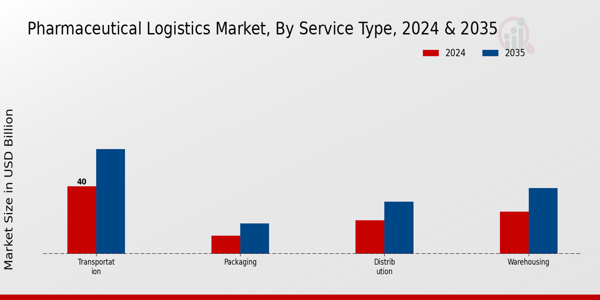

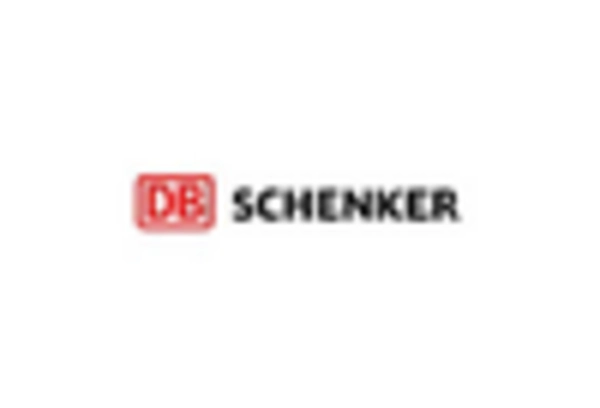
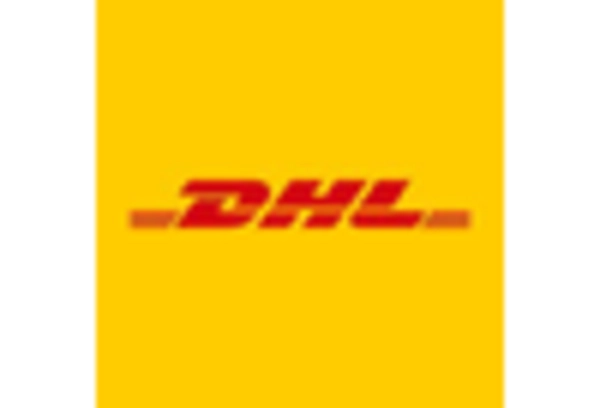
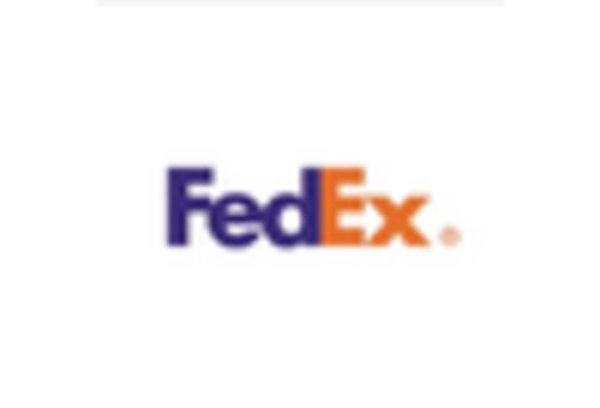
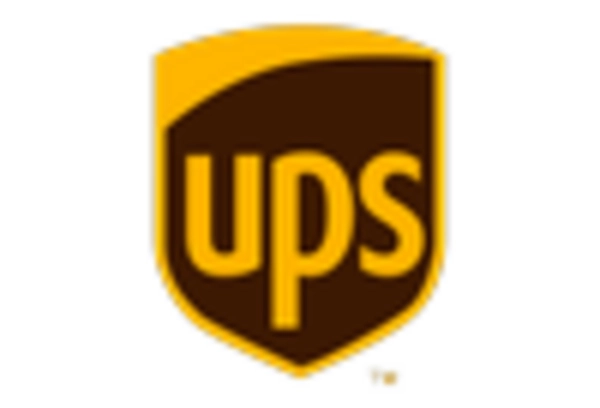
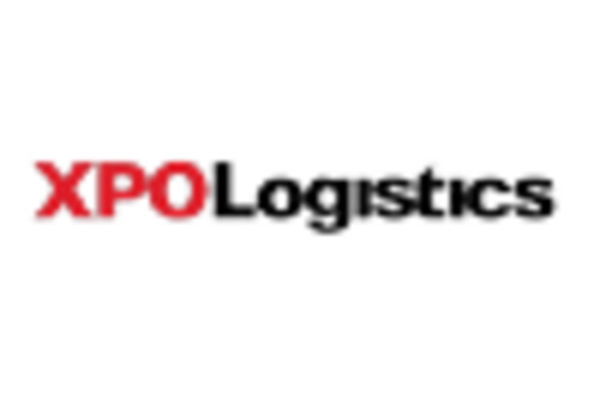









Leave a Comment